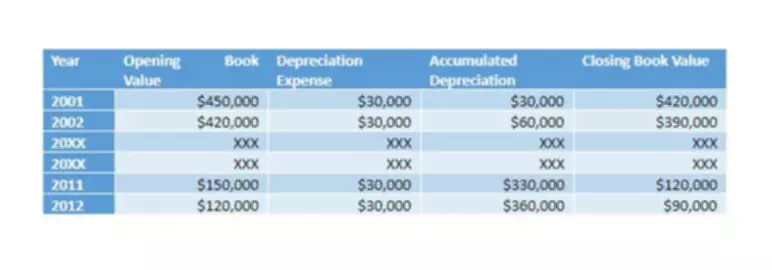3 Top Reasons to Hire a Bookkeeper for your Business
Content
- See How Easy It Is to Do Your Books With Your Very Own Checklist
- Deal With Foreign Currency Transactions
- Why Do Business Owners Need a Bookkeeper and an Accountant?
- Things Bookkeepers Do For Small Businesses
- Send Out Invoices and Manage Accounts Receivable
- What Is a Bookkeeper and When Do I Need One?
- What Do Bookkeepers Do?

Perhaps you use computer software everyday, and you play with some apps from time to time, but don’t consider yourself an ‘expert’? This may not have to be a problem when it comes to accounting software.
Bookkeeping vs. Accounting: Which Path Is Right For You? – Forbes
Bookkeeping vs. Accounting: Which Path Is Right For You?.View Full Coverage on Google News
Posted: Tue, 18 Oct 2022 22:16:10 GMT [source]
Significantly underpay your quarterly estimated taxes, and you’ll get saddled with fines from the IRS. Overpay them, and you’re effectively giving the IRS an interest-free loan.
See How Easy It Is to Do Your Books With Your Very Own Checklist
Similarly, though, most business owners feel like they can’t afford or don’t need to hire a bookkeeper. You stay in the place of pain because you think it is just one of those things that comes along with owning your own business. For example, new owners tend to want some support and reassurance when filing business taxes for the first time. But https://www.bookstime.com/ green business owners are certainly not the only ones looking for tax help. People who use QuickBooks at a high level every day can recommend integrations to get even more out of the software. In fact, they may even be able to suggest other compatible business apps to use in conjunction with QuickBooks to streamline other business operations.
In 2016, 1,730,500 people were employed in the U.S. as bookkeeping, accounting, and auditing hire a bookkeeper clerks. This software helps you create a monthly budget and monitor your finances.
Deal With Foreign Currency Transactions
While tackling anything “accounting” may feel daunting and cause resistance to managing your books, chances are there are also other reasons for having outdated books. Chances are, you didn’t start your own small business because you wanted to spend your time on bookkeeping. Handling expense receipts and invoices, along with all the other tasks that come with careful and meticulous bookkeeping, are a crucial part of running a business. But we can all agree these tasks easily suck up a huge amount of time—time that you could be spending doing what you do best, which is running your business.

Our team at Easier Accounting offers the outsourced accounting services you need. When you can see that you require services from an accountant or bookkeeper, you might consider the option to hire another employee so these duties are handled in-house. Before you bring on an employee, consider the salary requirements and overhead costs that will be incurred. Most of the time, small businesses don’t have the budget for a full-time financial employee. But don’t get stuck in the rut of assuming that your current services are always right for your changing business needs.
Why Do Business Owners Need a Bookkeeper and an Accountant?
They do, however, need to have an understanding of basic and key financial topics and also have an eye for accuracy. Knowing the difference between bookkeeping and accounting can be tricky, especially with the interchangeability of the terms and how the duties can overlap. While they are similar in many ways, there are a few significant differences. Most importantly, your accountant is a valued advisor who can help you with important decision-making. If you’re considering purchasing new equipment or taking out a line of credit, for example, your accountant can help you determine the financial ramifications of your decision. Investopedia requires writers to use primary sources to support their work. These include white papers, government data, original reporting, and interviews with industry experts.
- Do you understand exactly what an accountant can bring to the table?
- That’s just one reason of many why a business owner should hire an Accountant.
- These financial statements show a business’s bottom line, operating expenses, assets and liabilities, and cash inflows and outflows.
- Eventually, the time arrives when managing the books is the last thing you want to worry about.
- Maintain accurate financial records for your company in order to facilitate better reporting and analysis.
- With your small business, you’re faced with the decision to prepare your books by yourself or to outsource your bookkeeping for someone else to perform.
Bookkeeping qualifications do not include formal certifications or licenses. However, certified professionals may enjoy advantages in the job market.
Things Bookkeepers Do For Small Businesses
While he finds basic accounting easy to do, it takes him away from working on his business. Meanwhile, his accounting and tax planning have become only more complicated in the six years since he founded his business. Whether you’re considering outsourcing to a bookkeeper or hiring one to boost your skills, remember that working with a bookkeeper is an investment. It’s an upfront expense, sure, but that expense saves you time and money over the long-term. Bookkeepers are responsible for managing, recording, and organizing your business’s financial transactions. Compare your “salary” as your own bookkeeper against the price of professional bookkeeping. Once you treat the time you spend bookkeeping as an actual expense in cash, you’ll have a better idea of whether you should keep doing it.

Furthermore, a credible accounting company will also have legal considerations in place to recoup losses if fraud does occur on their end. Without leaning on a third-party in this capacity, businesses must manage these risks on their end, which is a daunting task for time-constrained owners. When compared to a typical business owner, a bookkeeper is more likely to enter and categorize business expenses and income correctly to reduce mistakes.
However, all of the things we’ve mentioned above don’t necessarily mean you need to outsource to a professional. While it sounds like hard work, it’s quite straightforward when you know what you’re doing.
- I believe any big or small company could benefit from working with professional accountants, so I’ll be sure to suggest it to my cousin.
- Although much modern bookkeeping is done online and thus facilitates remote work, it can be smart to have occasional in-person meetings with your bookkeeper.
- You can hire an expert to do it all, do it yourself or combine the two, using an expert to help you from time to time.
- If bookkeeping is something you truly dread, you’re going to spend as little time on it as possible, which could lead to inaccuracies and cause you even more headaches.
It’s hard to imagine that the financial aspects of your business make you excited. You likely have no passionate feelings about tallying up payroll or writing checks to pay the bills. Your bookkeeper can put the financials in order and run reports showing how you are doing each month, where the funds are going and how your efforts are paying off . He or she will give you that “big picture” through the numbers being crunched. Whether you’re still traumatized from high school calculus or simply don’t consider yourself a math aficionado, dealing with business finances is tough.
What Is a Bookkeeper and When Do I Need One?
However, some businesses may still want the reassurance from a financial professional that their taxes are being filed correctly. Financial data is the basis for cash flow management, hiring decisions, tax planning, and strategic investing. However, much like a race car’s potential cannot be fully utilized without a professional driver, data cannot be used to the fullest without a financial professional to analyze it. It might be a bigger role than bookkeeper—maybe you’ll need an office manager. An office manager could also handle payroll, bank deposits and statement reconciliations, sending out invoices, contacting slow-paying customers, reviewing credit card statements and more. Furthermore, an accountant reviews financial statements and generates tax returns.
